Covid pushes Sydney vets to the brink amid surge in demand
Covid has resulted in the biggest surge in pet ownership in Australian history with vets now struggling to cope with an influx of cases coming from inexperienced owners.
NSW
Don't miss out on the headlines from NSW. Followed categories will be added to My News.
Vets are at breaking point following a surge of inexperienced owners who took on pets during the Covid lockdowns.
NSW vets are facing unprecedented levels of demand with a report stating Covid has led to the biggest boom in pet ownership ever in Australia.
A large proportion of these are first-time pet owners and have limited experience in caring for animals.
Vets are also reporting that owners are resorting to Google to find answers and are then questioning advice from vets.
The strain put on vets is also having an impact on mental health with one study suggesting as many as 66.6% have experienced a mental health condition of some kind.
A recent report from Animal Medicines Australia (AMA) and the Australian Veterinary Association (AVA) highlights just how much pressure vets are facing from the recent surge in ownership.
The report calls it the biggest boom in pet ownership Australia has seen with an estimated 30.4 million pets across the country.
The report states this is largely down to a surge in dog ownership — with over a million additional dogs being brought into Australian households since 2019.
Giving context, the AVA states on its Facebook page: “We know that there are around 125,000 doctors to look after almost 26 million Australians, compared to only 13,500 vets to look after the 30.4 million pets.”
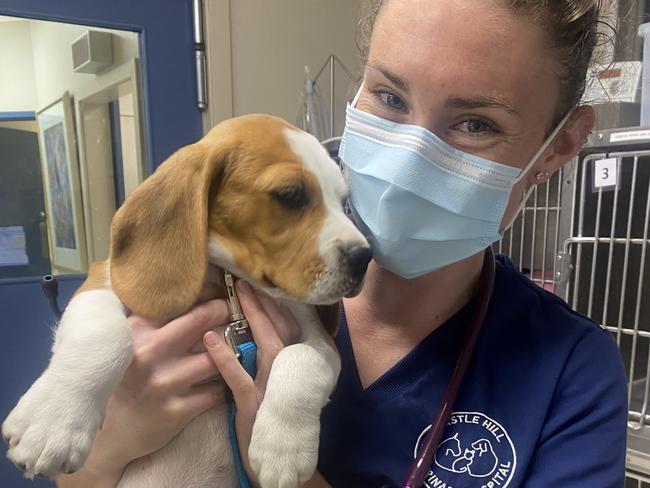
Dr Katie Jones, a veterinarian at Castle Hill, said she has noticed a huge uptick in demand for services since Covid began.
“There were a lot of people buying puppies and kittens back in the original 2020 lockdown,” she said. “And we are now seeing lots of people’s 18 month old dogs or cats that their owners still refer to as their ‘lockdown puppy’.”
Dr Jones said the amount of patients still calling their pet a ‘lockdown puppy’ is itself an issue because of the behavioural problems associated with that.
She puts this down to people not realising owning a pet is going to be an ongoing and taxing process.
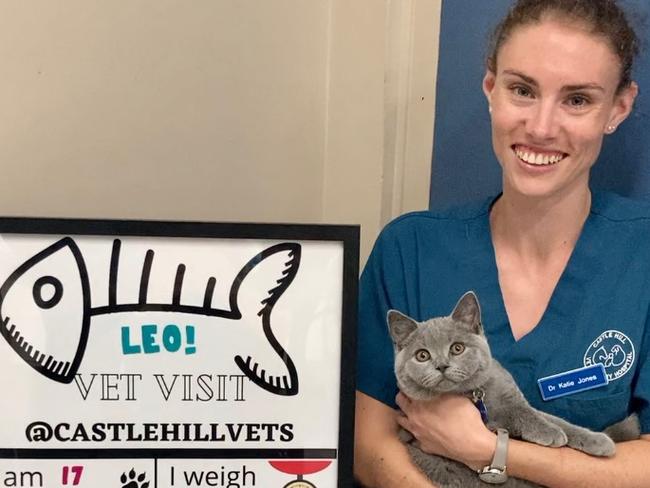
“Certain new owners don’t know exactly what the routine of caring for their pet entails — they don’t know, for example, that you have to vaccinate them every year,” she said.
“They think once their puppy has had their vaccination it’s set for life — but it’s not at all like that.”
She added: “The difference between having a pet and having a kid is that your kid’s medical care will be free.
“I feel like it’s often a much quicker decision to just go out and buy a cat or a dog … but it’s a big cost over the years and that’s something people don’t think about when they see that cute little kitten or puppy.”
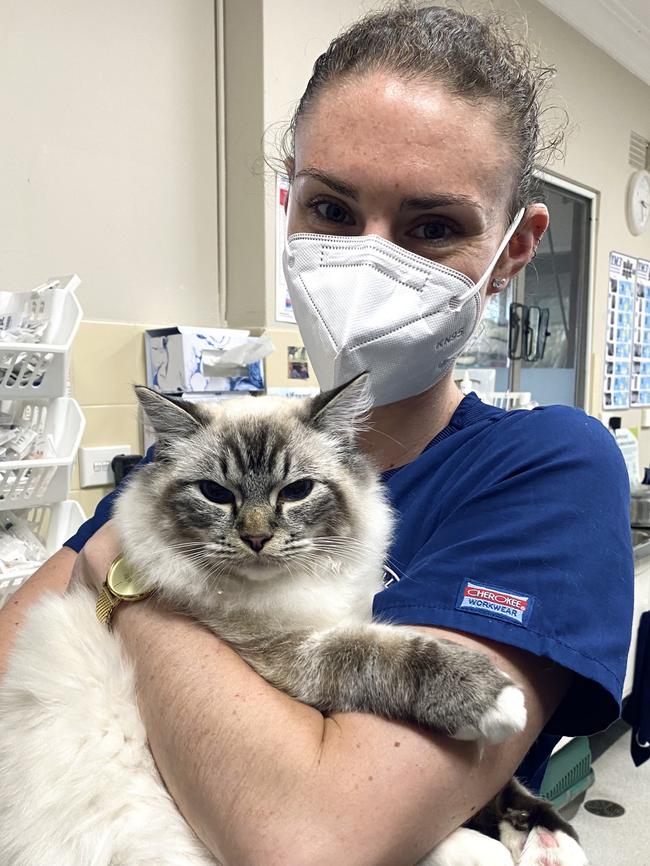
Dr Jones is also noticing many first-time pet owners trusting the advice of “Dr Google” over her expertise.
She said: “There are lots of clients coming in and saying ‘I’ve looked this up (online)’ … and then questioning our plan in comparison to what they’ve heard.”
She has found the rise in vaccine hesitancy during Covid particularly difficult, adding “I feel like I am having to convince people of what they should be doing and that they can trust me as an expert with a degree — it’s a lot to deal with.
“It’s really refreshing when there is an owner that says, ‘I trust you, you know what you’re doing.
“Because it’s really important for people to have that trust in the professional side of things.”
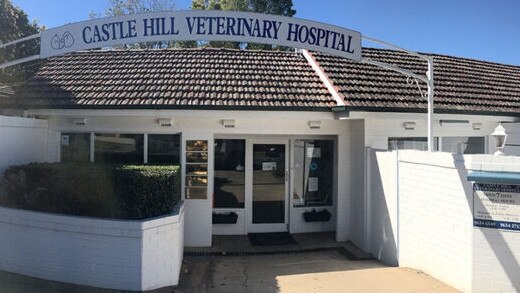
The staff at the Castle Hill Veterinary Hospital have also been battling staff shortages throughout Covid.
During the latest Omicron wave, they’ve had to manage the surge in demand for vet services while also dealing with the least staff they’ve had in several years, as many were out isolating or ill with Covid.
A September 2021 report by the AVA highlighted the impact the strain is having on the mental health of vets.
The study found over half of people (66.6%) said they have or are experiencing a mental health condition, in which 60% had been diagnosed by a medical professional.
Another key finding was “the majority of individuals say they are leaving work feeling emotionally drained and the impacts of excessive workloads proves to be especially taxing”. The report added: “The impacts of COVID-19 were reported to be particularly challenging … 2 in 5 people reported seeking help or support for their mental health.”
Negative interactions with the general public and challenging client behaviour was cited often as having the biggest impact on mental health and many felt this has got worse in recent years, in particular due to Covid.
The report said: “The constant flow of abuse, manipulation, emotional blackmail, and disrespectful behaviour creates a negative workplace experience and often grinds veterinary staff down.”
Dr Tim Hopkins, who works as an Emergency Veterinarian at SASH Ryde, a small animal specialist hospital, has also noticed the added pressures Covid has placed on vets across NSW.

Apart from staff and supply shortages, Dr Hopkins said the closure of Australia’s borders has also added to the demand on vets.
“We’re heavily reliant on international vets and that means that the supply of vets and nurses is very low at the moment nationally,” Dr Hopkins said.
He has also been struggling to deal with certain clients who do not understand the Covid protocols SASH needs to follow to stay open and keep staff safe.
“You get clients who have not been reasonable or fair with that kind of stuff,” he admitted.
“The restrictions that have been imposed upon us, we have to follow those to stay open — it’s really difficult for vets to deal with complaints that are from people who should know that we are here to stay open and look after their pets,” he said. “And to do that, we need to follow certain Covid protocols.”
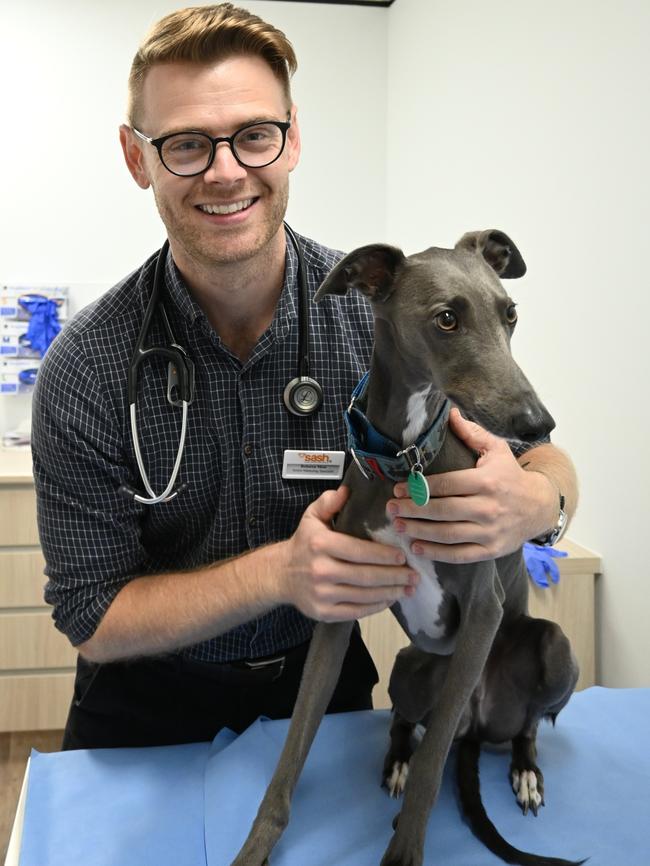
Regarding the uptick in new pet owners, Dr Hopkins said most are being reasonable and bringing them in to see a vet if they have concerns.
However, he also puts the surge in demand down to new owners who have little knowledge about caring for animals.
He said: “Things we might take for granted, such as diet, exercise and behavioural training.”
In particular, Dr Hopkins spoke about the lack of dietary knowledge he has seen.
“We do see, especially people coming in with really young kittens, and they’re feeding them really inappropriate food like Cornflakes and Weet-Bix — not kitten milk.”
However, he said it was unfair to state all new pet owners are irresponsible or that no one should go out looking for a new member of their family.
“Overwhelmingly, the benefits of pets outweigh the challenges … that human-animal bond is to be cherished,” he said.
“Pets aren’t our whole lives, but they do make our lives whole.”




